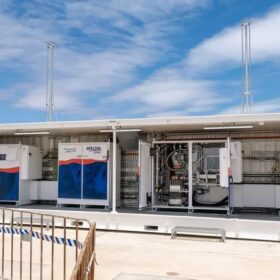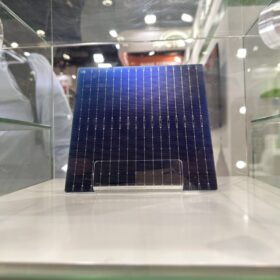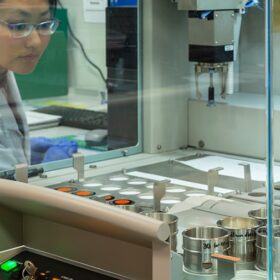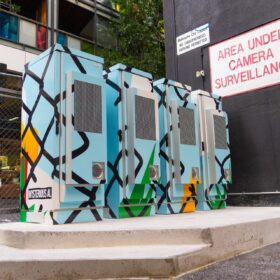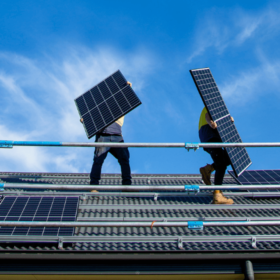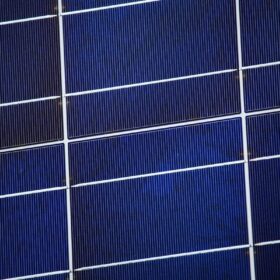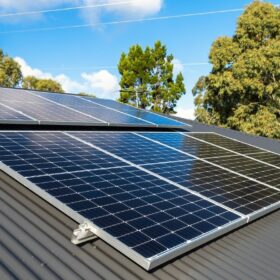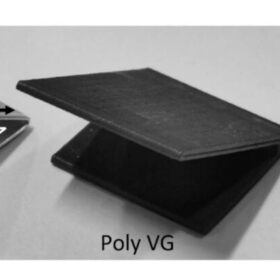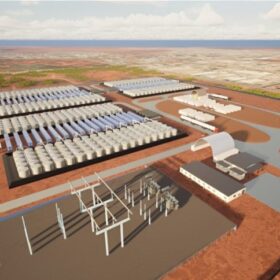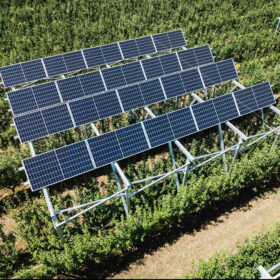Horizon report reveals learnings from solar and hydrogen microgrid project
The development of a custom control program that allows for the autonomous management of the sub-systems that make up a hybrid solar and green hydrogen microgrid helping to power the Western Australian town of Denham is among the key lessons outlined in a new report released by the state government.
All solar cell efficiencies at a glance – updated
The research group led by University of New South Wales Scientia Professor Martin Green has published Version 64 of the solar cell efficiency tables. There are 19 new results reported in the new version.
Queensland project to develop perovskites for next gen solar cells
A Queensland University of Technology project has been awarded almost $600,000 in federal funding to develop production processes to transform Australian resources into perovskite precursor to be used in the manufacture of next generation solar cells.
Melbourne connects first battery as part of planned city network
The first of three planned 150 kW battery energy storage systems that are to form a combined 450 kW / 1 MWh capacity coordinated battery network across inner Melbourne has been switched on.
Li-S lands funding to explore lightweight batteries in aircraft application
Lithium-sulphur battery play Li-S Energy has been awarded $1.35 million in federal funding to continue exploring the potential of its lightweight and energy dense batteries to deliver a drone that can operate from dawn to dusk on a single charge.
AGL partners with Elecsome on solar panel recycling plan
Power giant AGL Energy has teamed with Melbourne-based solar panel recycling company Elecsome to explore the development of a PV materials recovery facility at the site of the coal-fired Bayswater power plant in the New South Wales Hunter Region.
RETC releases 2024 PV Module Index
The United States-headquartered Renewable Energy Test Center has released its annual PV Module Index, evaluating the reliability, quality, and performance of solar panels.
Sunshine Coast to host Australian first local renewable energy zone
A “nation first” local renewable energy zone will be established on Queensland’s Sunshine Coast as part of a pilot program designed to boost rooftop solar generation, store it and share it locally across the poles and wires infrastructure that already exists.
UNSW team creates vortex generators for passive solar module cooling
University of New South Wales researchers have created vortex generators that can reportedly reduce the operating solar module temperature by up to 2.5 C. They built two different prototypes, based on aluminum and a conductive 3D printable polymer, and tested them under several scenarios in an experimental setting deployed in Sydney.
UQ research boosts performance of solid state zinc batteries
Researchers from the University of Queensland have developed a new class of solid electrolytes for rechargeable aqueous zinc-iodine batteries, which has allowed for extended lifespan and high efficiency.
